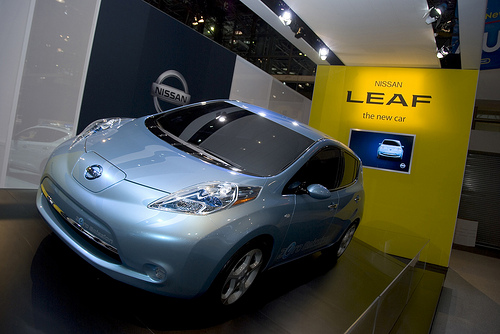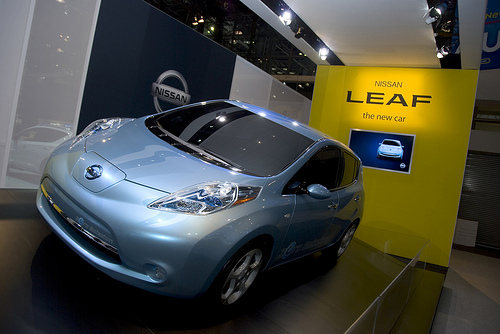 More like this are on the way.Photo: Dave Pinter
More like this are on the way.Photo: Dave Pinter
When President Obama in his State of the Union address called for 1 million electric cars to be on the road by 2015, skeptics scoffed. But in a report [PDF] released Tuesday, the Department of Energy basically said no worries. We’ve already arrived at our destination.
That optimism comes from automakers’ existing projections of how many electric cars they expect to produce over the next five years.
“The production capacity of EV models announced to enter the U.S. market through 2015 should be sufficient to achieve the goal of one million EVs by 2015,” the report states, noting that 1.6 million hybrids like the Toyota Prius have been sold over the past six years.
If the estimates bear out, 1.2 million electric cars will hit the highways by 2015. That’s about 10 percent of current annual automotive sales. But those rosy numbers includes some big figures from startup companies like Fisker Automotive that have yet to roll a single production vehicle off the assembly line.
According to the Energy Department, Fisker expects to sell 195,000 of its forthcoming Nina plug-in hybrid by 2015, along with 36,000 Karma high-end sports sedans. And Think, the Norwegian electric carmaker, says it’ll sell 57,000 of its urban runabout in the United States within four years. The Chevrolet Volt, which you can buy now if you live in certain cities, would account for nearly half the projected sales of electric cars in 2015.
On the other hand, those estimates don’t count a number of automakers that say they will or are likely to introduce electric cars in the coming years, depending on how the market shakes out. Among them: Chrysler, China’s BYD, Coda, Honda, Mitsubishi, Hyundai, Toyota, Volkswagen, and Volvo.
Which raises a question: Did the president set his sights too low if it’ll be so easy to get a million EVs on the road by 2015?
It’s always hard to forecast the market for an expensive new technology like the electric car, but the short answer is, probably.
The Energy Department cites studies showing that if battery production goes from 10,000 to 100,000 units a year, battery costs will decline 30 percent to 40 percent. And the report notes that electric vehicles’ overall lower operating costs appeal to corporate fleet purchasers that buy in bulk.
The report made clear that the government has a role to play in promoting the retirement of the internal combustion engine, from handing out research and development cash to funding a nationwide network of electric charging stations.
One suggestion is sure to be popular with potential electric car buyers and could stimulate sales: The Obama administration has proposed converting the $7,500 federal tax credit for EVs into a rebate payable upon purchase at the dealer, rather than making you wait until tax time to gain its benefit.



